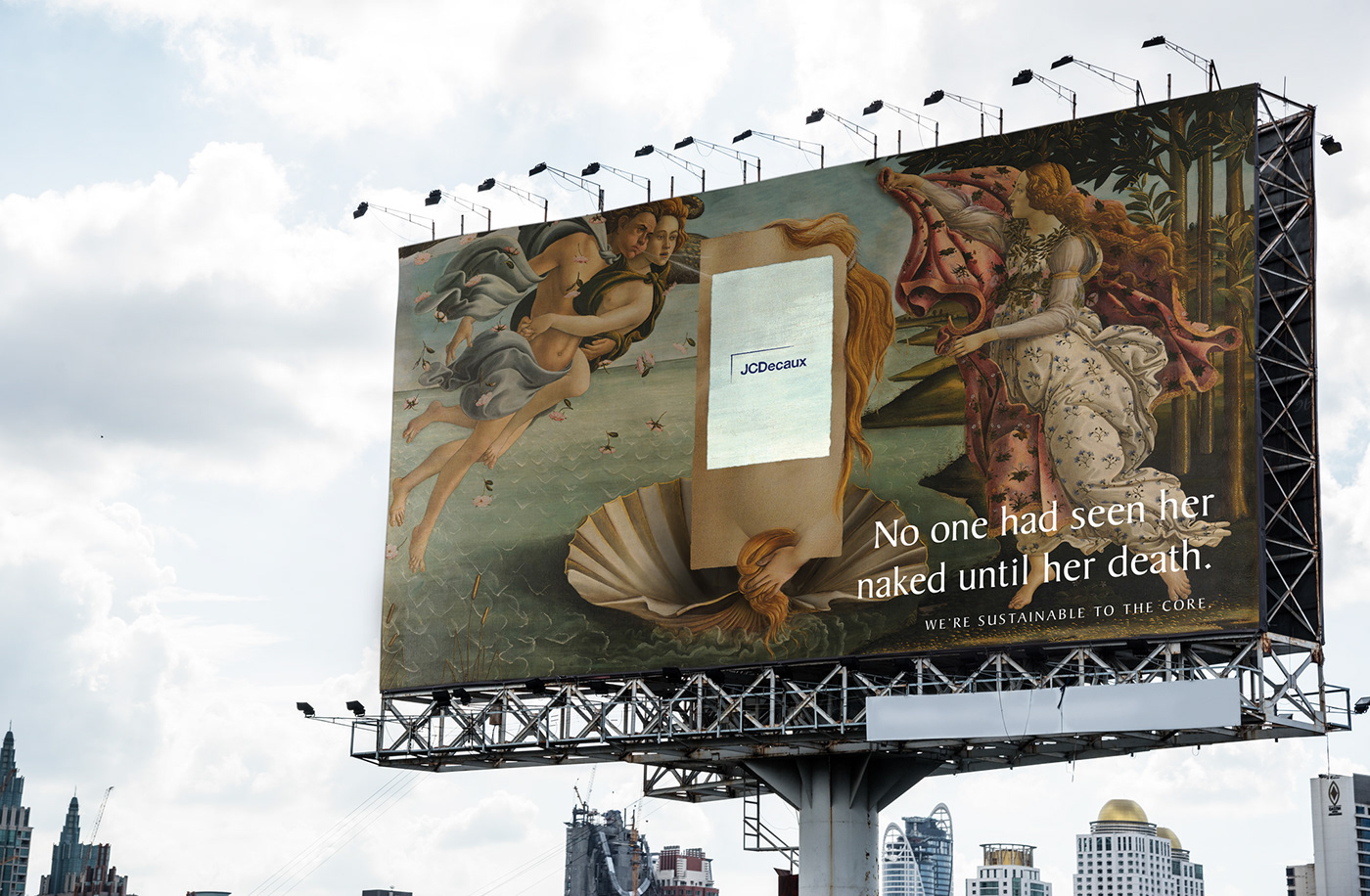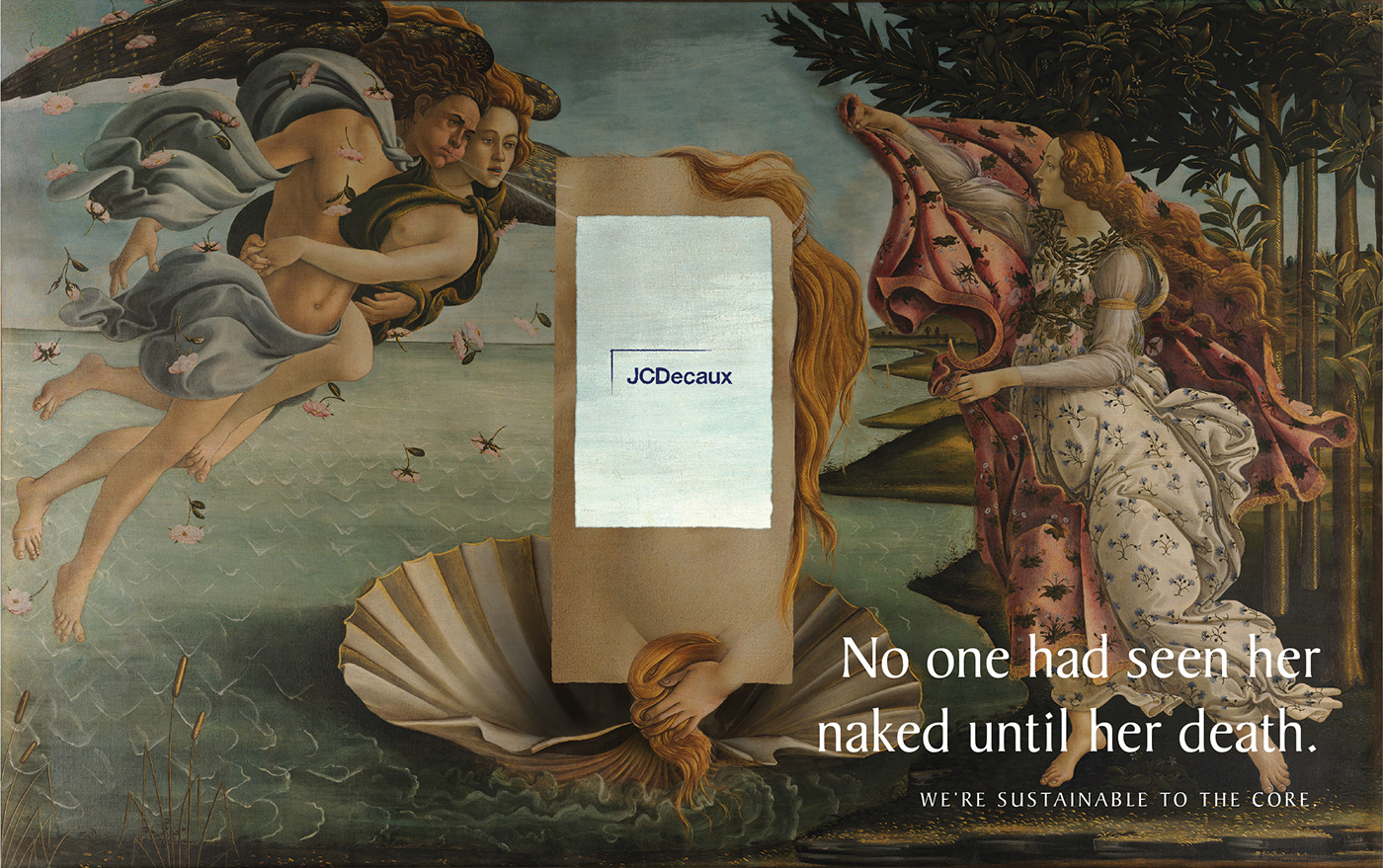Birth of Venus
Following up one of the latest updates coming from JCDecaux about their tremendous and incomparable sustainability, the poster below portraits the concept with a fine-art key.
What would have Sandro Botticelli done if JCDecaux had been commissioning him a poster that would inspire people to love and intellectuality back in the time? How would he have been portraying JCDecaux products?
According to the ancient Greek philosopher Plato, Venus had two aspects: she was an earthly goddess who inspired humans to [physical] love, but on the other hand, she was a celestial goddess who inspired humans to intellectual love. Plato also argued that contemplation of physical beauty enabled the human mind to comprehend spiritual beauty: this means that when 15th-century Neo-Platonic viewers looked at The Birth of Venus, they would have felt themselves being inspired to contemplate spiritual (that is, divine) love.

It then follows up a message from JCDecaux with such poster to inspire people to love what comes from nature and belongs to us all. Inspires people to intellectual [love] where the thinking behind the scenes of this No. 1 Outdoor Advertising Company has.
Birth of Venus conveys a masterpiece full of technology and total sustainability for our planet. What comes from nature, returns to nature itself.

"No one had seen her naked until her death."
The slogan conveys a meaning behind the JCDecaux-Botticelli. We can truly understand and feel JCDecaux products especially when these are no longer in need: once these return back to the waste. Moreover, it is by then that we can see that every part and inches of this now called 'waste' is re-used again.



